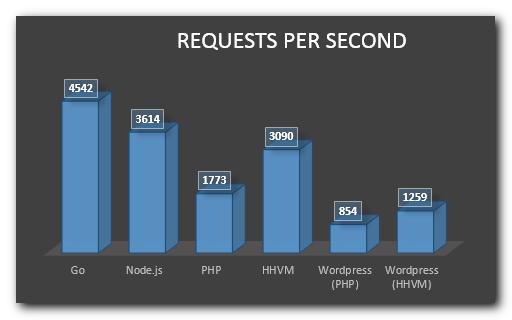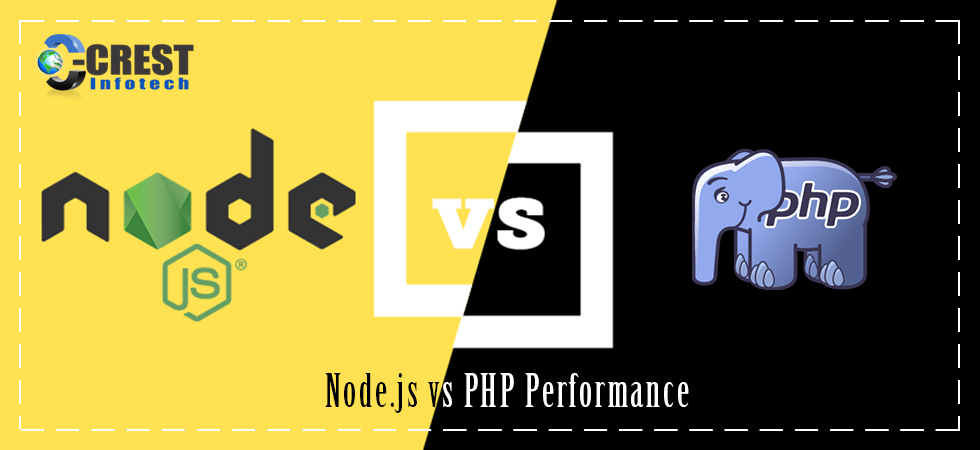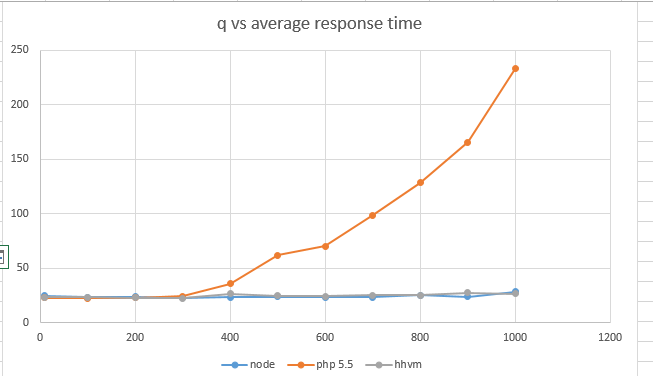In the online development world, NodeJS and PHP are some of the most popular platforms used. Everybody wants to know about NodeJS vs PHP Performance. We are trying our best to give you all possible information as per our expert’s knowledge.
PHP was first released in 1995, followed later by NodeJS in 2009, and they are both mainly used as a server-side scripting language for developing web-based applications. However, NodeJS is also starting to be used as a desktop application development platform. If you want to Hire PHP Developer, you can get in touch with us.
NodeJS VS PHP PERFORMANCE
PHP began as a dynamic language to update HTML pages with syntax similar to Perl and started off as a rather basic programming language. NodeJS used the already well-established JavaScript language and created a new development platform on top of the V8 JavaScript engine. Over time, PHP got more and more advanced programming features, such as an object-oriented programming model, namespaces, package management, and exceptions.
In this article, we will take a look at the performance differences between these two platforms, some popular PHP extensions to improve performance, such as the Zend JIT runtime and HHVM PHP runtime project, and some third-party benchmarks of these extensions.
THE BASICS OF NodeJS VS PHP PERFORMANCE
One area where there has been a healthy competition of sorts between PHP and NodeJS is in the area of performance.
PHP – INTERPRETED COMPILATION
The standard PHP Zend runtime uses an interpreted compilation strategy, leading to less optimized code execution than a good JIT-(Just-in-Time)-based runtime.
NodeJS – JUST-IN-TIME COMPILATION USING V8
NodeJS uses Just-in-Time compilation with the V8 JavaScript Engine. This strategy for dynamically typed languages has proven itself but does often increase startup time a little.
INCREASE PHP PERFORMANCE: OPCACHING, JIT COMPILATION, AND HHVM
Several popular extensions have been developed — designed to improve PHP performance.
OPCACHING IN PHP
Zend PHP 5.5+ also has a caching engine called OPcache, which stores precompiled script byte code in shared memory, thereby removing the need for PHP to load and parse scripts on each request. This is not as performant as JIT compilation but is a stable feature that is working now. You can enable PHP 5.5 OPcache if for some reason it’s not enabled by default (as it should be with PHP 5.5 or higher).
PHP RUNTIME ALTERNATIVES: HHVM & HACK
HHVM is an open-source virtual machine designed for running applications written in PHP and/or the Hack language.
HHVM uses a Just-in-Time (JIT) compilation approach to achieve better performance. NodeJS also does JIT compilation using the V8 JavaScript runtime.
To make the most of the HHVM JIT compilation, it is important to put your code into functions, especially for the more time-consuming code parts.
The Hack language allows for performance improvements mainly due to these language features:
JIT COMPILATION IN FUTURE PHP RELEASES
There has been discussion and development to use JIT compliation in a future release of the PHP Zend runtime. JIT for PHP provides more than five times speedup on bench.php and as high as a 30 times improvement on some other specific benchmarks like Mandelbrot.
MULTI-TASKING IN NodeJS AND PHP
NodeJS and PHP differ in their approach to concurrency, with NodeJS using a non-blocking event loop (running in a single process) and the standard PHP Zend runtime using a blocking process.
For this reason, multiple PHP processes are often launched from the web server to be able to keep serving web requests. In Apache, you can set the maximum number of PHP processes allowed to run, and this works fine for many types of web applications.
Now, when the work being done in these processes tends to be long (er)-running, the server can quickly run out of available PHP processes. This will cause the HTTP request response times to increase, perhaps even to the point of requests timing out.
Web servers like Apache and NGINX have ways to improve the PHP multi-tasking performance to some extent, but these are more limited than true language support for multi-tasking.
There are several projects being worked on to make PHP asynchronous processing (multi-tasking) works better. The most popular are the HHVM project released in 2014 by Facebook; another project tackling PHP concurrency is threaded.
NodeJS VS PHP PERFORMANCE BENCHMARKS
So what might these PHP extensions bring us in terms of performance compared to standard PHP or NodeJS?
Let’s have a look at a few different benchmarks people have done.
BENCHMARK 1: SIMPLE HTTP REQUESTS
Click on the image to go to the benchmark website and see the full setup details.

- This HTTP-controlled “hello world” benchmark used Zend PHP 5.6.6 with OPcache enabled.
- The test was done using the Apache ab benchmarking tool.
- The performance of Zend PHP is less than half of NodeJS.
- HHVM performance is about 74% better than Zend PHP.
- The performance of HHVM is very close to NodeJS, but NodeJS is still about 17% faster.
- Performance increase when using WordPress with HHVM is about 47%.
BENCHMARK 2: HTTP + CPU TASKS
Notes:
- This HTTP bubble-sort-job benchmark used Zend PHP 5.5.7 with OPcache enabled.
- The PHP response times degrade rapidly after depleting the available PHP process pool (using a standard maximum of 250 processes on the web server).
- The HHVM performance is similar to NodeJS up to 1,000 sort elements, but with 10,000 sort elements, NodeJSwas about twice as fast HHVM (not visible on this chart).
BENCHMARK 3: COMBSORT STRICT CPU TEST
The following CombSort sorting benchmark is a strict CPU test.
The benchmark results:
Notes:
HHVM is seven times faster than plain PHP (by system time). However, NodeJS is more than five times faster than HHVM in this number-crunching test.
In terms of RAM usage, HHVM is much more efficient than PHP, but NodeJS is even better.
FINAL THOUGHTS ON NODEJS VS PHP PERFORMANCE
For most PHP applications, HHVM clearly provides a significant performance boost thanks to the JIT compilation. The same will likely be true when the Zend runtime JIT feature is stable and released. How much the PHP JIT compilation improves upon the non-JIT PHP is also a matter of code organization (especially the time-consuming code parts).
At best, HHVM is on par with NodeJS, but in some cases, NodeJS will clearly perform much better (e.g., for CPU-bound tasks). There are also more async code modules available for NodeJS.
There is an ongoing discussion about the future of the Zend and HHVM PHP runtime. HHVM also looks to be getting even faster by using LLVM later this year. That’s all about NodeJS vs PHP Performance.





